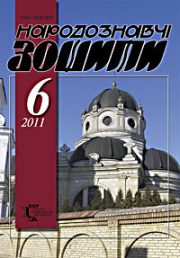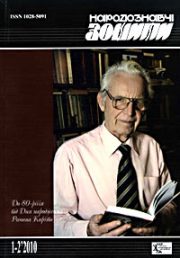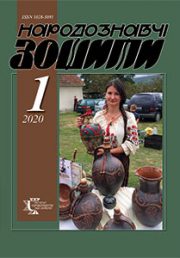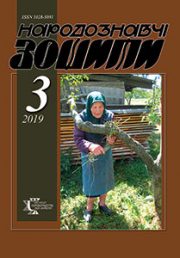The Ethnology Notebooks. 2019, № 5 (149), 1291—1295
UDK 378.016:811.161. 2’243’373.45:811.111
DOI https://doi.org/10.15407/nz2019.05.1291
DANCHYSHYN Nazar
ORCID ID: https://orcid.org/0000-0001-8350-9109
Junior Research Fellow
at the International Institute
of Education, Culture and Diaspora Relations
Lviv Politechnic National University
32А, Stepan Бандери str. , 79013, Lviv, Ukraine
e-mail: nazar.danch@gmail.com
Abstract. In the article the peculiarities of the use of audiovisual method in teaching Ukrainian as a foreign language are analyzed. The expediency of using the method is substantiated. Examples of practical implementation of the principles of the method in the educational project of interviews with Ukrainian cultural figures «Art walks with IIEC» were demonstrated. A set of exercises for video interviews with representatives of contemporary Ukrainian culture is offered.
The urgency of the research is caused by the lack of qualitatively new audiovisual materials for the study of Ukrainian as a foreign language, and such are very much in demand
The purpose of the article is to show how to learn Ukrainian language and culture through a video interview. The following research methods were used to achieve the goal: descriptive, comparative.
Results. An important component in the study of a foreign language is the development of its perception of hearing, that is, the knowledge of «language in action» — in specific dialogues and everyday communication. For this, the audiovisual method should be used.
To implement the principles of audiovisual method while teaching Ukrainian as a foreign language, we suggest to use the materials of our author’s project «Art walks with IIEC» — a series of video interviews with contemporary Ukrainian artists — writers, artists, composers, musicians. The purpose of this project is to show modern Ukrainian, and to create original material for learning the Ukrainian as a foreign language through exercises specially written for the videos.
Among the participants of the project «Art walks with IIEC» are prominent personalities: writers Ihor Kalynets, Halyna Kruk, Oksana Zabuzhko, Oksana Lutyshyna, singer Natalia Polovynka, musician and composer Taras Kompanichenko ets. Each interview takes place in a new place, each new guest reveals a new sides of Ukrainian culture. The full version of the interview will be available on Internet, and small pieses of interviews with a range of listening exercises will become part of a new textbook on Ukrainian as a foreign language «Key to Ukraine: cities and people (level C1)», which completes the work staff of the International Institute of Education, Culture and Diaspora Relations.
Conclusions. Thus, learning Ukrainian language and culture through a video interview is a very useful means. So, we provide a holistic study of language through culture and culture through language.
Keywords: Ukrainian as a foreign language, Ukrainian culture, audiovisual method, video interview, listening.
Received 9.10.2019
REFERENCES
Martynyshyn, N. (2017). Audiovisual method of teaching Ukrainian as a foreign language for children. Pedagogical almanac, 33, 69—74 [in Ukrainian].
Tsisar, N. (2016). Audiovisual tools for teaching foreigners. Theory and practice of teaching Ukrainian as a foreign language, 12, 210—216 [in Ukrainian].
Hlazunova, T. (2006). Course of lectures on the methodology of teaching foreign languages in the secondary school (for students of 4 courses of correspondence form of study). Vinnytsia. URL: https://studfiles.net/preview/4543329/page:15/ (Last accessed: 07.10.2019) [in Ukrainian].
Martynyshyn, N. (2017). Song-video clip based on a lesson in Ukrainian as a foreign language for children. Theory and practice of teaching Ukrainian as a foreign language, 13, 184—190 [in Ukrainian].
Prykhod’ko, D. To the problem of choosing a method of teaching a foreign language. URL: http://www.kamts1.kpi.ua/ru/node/924 (Last accessed: 07.10.2019) [in Ukrainian].
Skurativs’ka, M. Modern methods and technologies of teaching of foreign languages in the higher school of Ukraine. URL: http://intkonf.org/skurativska-mo-suchasni-metodi-ta-tehnologiyi-vikladannya-inozemnih-mov-u-vischiy-shkoli-ukrayini/ (Last accessed: 07.10.2019) [in Ukrainian].
Zaborovs’kyj, V., & Merzlikina, I. From the history of teaching foreign languages. URL: http://intellect-invest.org.ua/pedagog_editions_e-magazine_pedagogical_science_vypuski_n4_2010_st_11/?print (Last accessed: 07.10.2019) [in Ukrainian].







